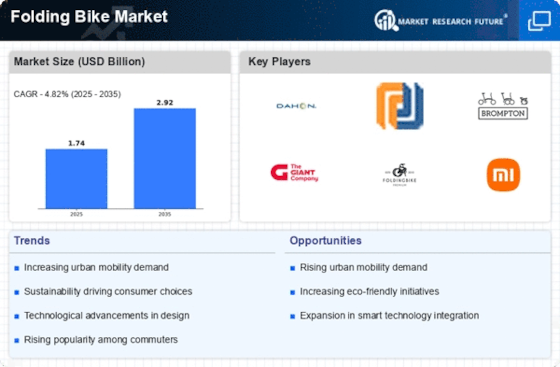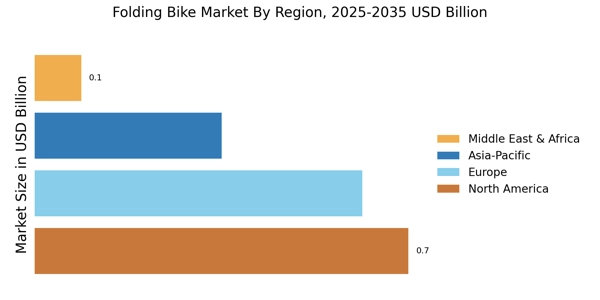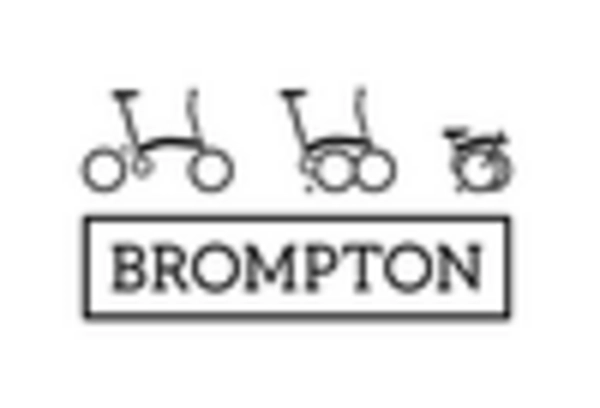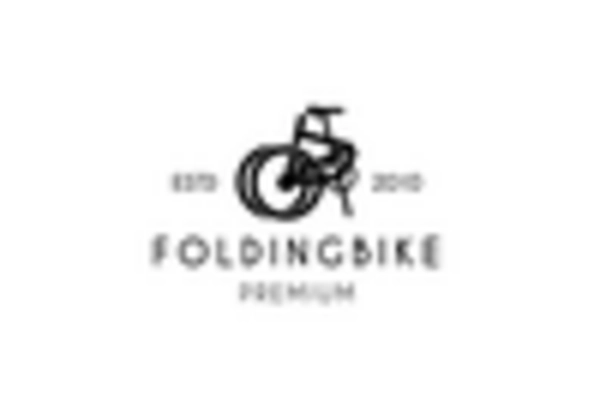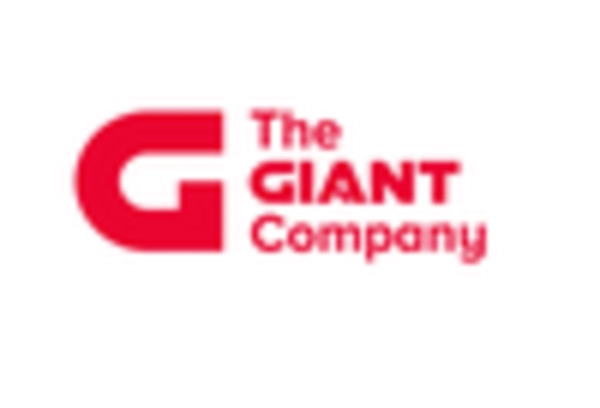Health and Fitness Trends
The Folding Bike Market is benefiting from the rising awareness of health and fitness among consumers. As more individuals recognize the importance of physical activity, cycling has emerged as a popular form of exercise. Folding bikes provide a convenient way to incorporate cycling into daily routines, whether for commuting or leisure. Market Research Future indicates that the global fitness industry is projected to reach over 100 billion dollars by 2025, reflecting a growing interest in health-oriented products. This trend is likely to bolster the Folding Bike Market, as consumers increasingly seek versatile and accessible options for maintaining an active lifestyle.
Technological Innovations
Technological advancements play a pivotal role in shaping the Folding Bike Market. Innovations in materials and design have led to the development of lighter, more durable, and more efficient folding bikes. For instance, the introduction of high-strength aluminum and carbon fiber has enhanced the performance and portability of these bikes. Additionally, the integration of smart technology, such as GPS tracking and electric assist features, is becoming increasingly prevalent. Market data indicates that the electric folding bike segment is expected to grow significantly, driven by consumer interest in eco-friendly transportation. As technology continues to evolve, the Folding Bike Market is likely to see a diversification of product offerings, catering to a broader range of consumer preferences and needs.
Urbanization and Commuting Trends
The Folding Bike Market is experiencing a surge due to increasing urbanization and changing commuting patterns. As cities expand, the demand for efficient and space-saving transportation solutions rises. Folding bikes offer a practical alternative for urban dwellers, allowing for easy storage and portability. According to recent data, urban areas are projected to house over 68% of the population by 2050, leading to a heightened need for compact transportation options. This trend is further supported by the growing emphasis on reducing traffic congestion and pollution, making folding bikes an attractive choice for commuters. The Folding Bike Market is thus positioned to benefit from these urban mobility trends, as more individuals seek sustainable and convenient commuting solutions.
Environmental Concerns and Sustainability
The Folding Bike Market is significantly influenced by growing environmental awareness and the push for sustainable transportation solutions. As concerns about climate change and air quality intensify, consumers are increasingly seeking eco-friendly alternatives to traditional vehicles. Folding bikes, which produce zero emissions and require minimal resources for production, align well with these sustainability goals. Recent studies suggest that the adoption of bicycles, including folding models, can reduce urban carbon footprints by up to 30%. This shift towards greener transportation options is likely to drive demand within the Folding Bike Market, as more individuals prioritize sustainability in their commuting choices.
Government Initiatives and Infrastructure Development
Government initiatives aimed at promoting cycling and improving urban infrastructure are significantly impacting the Folding Bike Market. Many governments are investing in cycling infrastructure, such as dedicated bike lanes and parking facilities, to encourage the use of bicycles as a primary mode of transport. This investment not only enhances safety for cyclists but also promotes the adoption of folding bikes, which are particularly suited for urban environments. Recent data indicates that cities with robust cycling infrastructure see a 20% increase in bike usage. As these initiatives continue to expand, the Folding Bike Market is likely to experience sustained growth, driven by supportive policies and infrastructure improvements.


